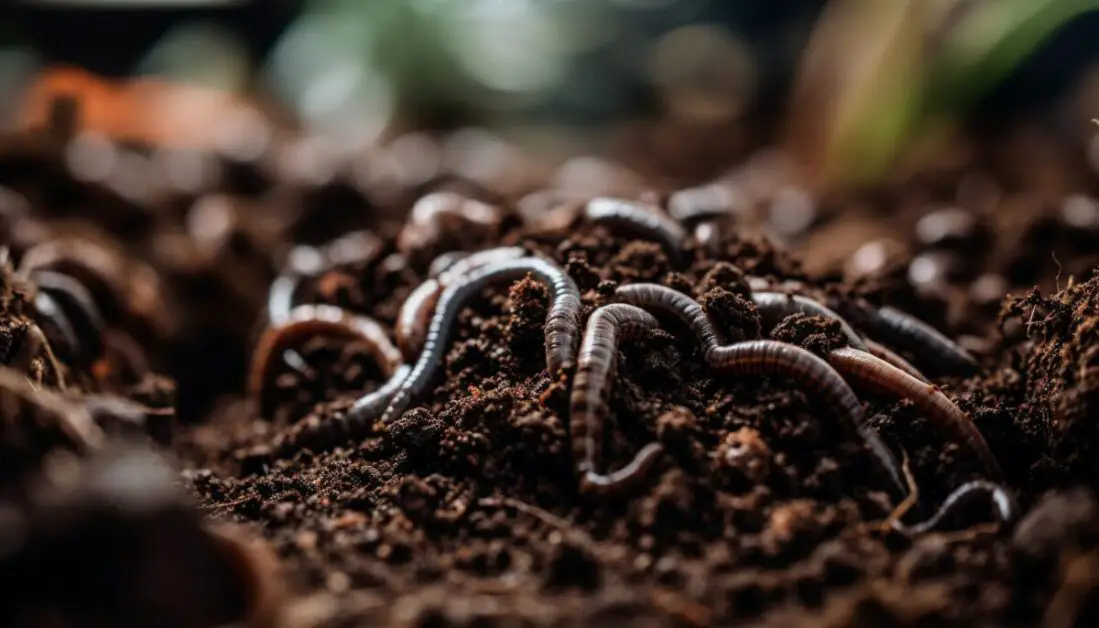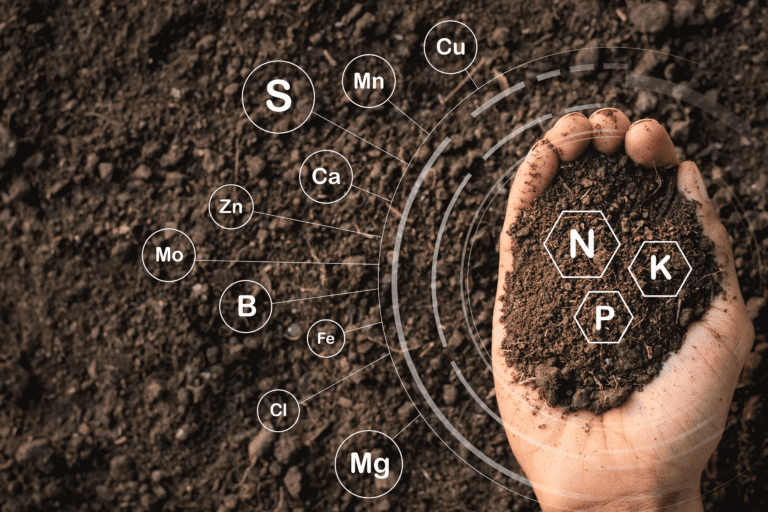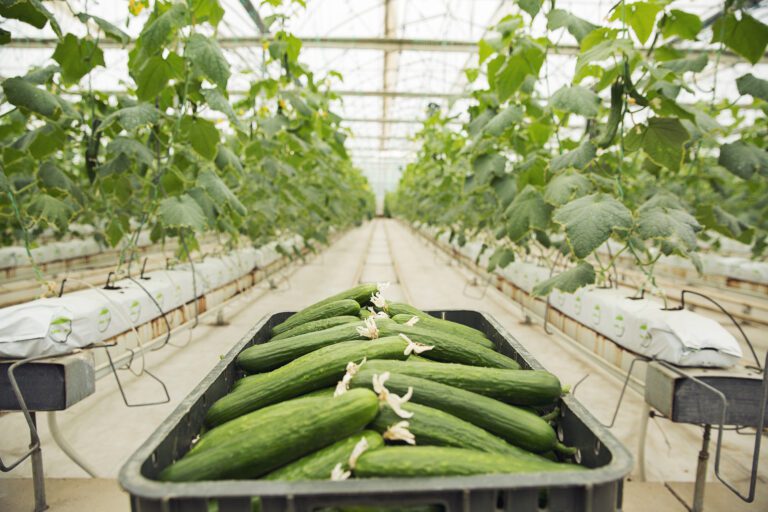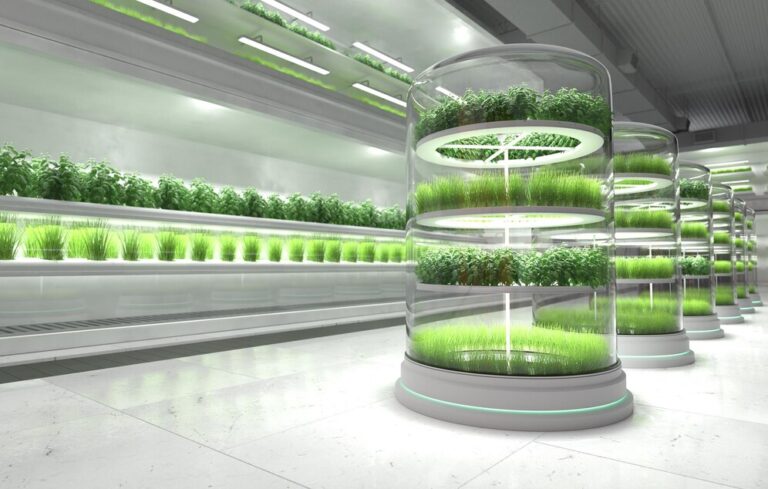How to Use Worm Castings: A Guide to Using This Organic and Rich Fertilizer for Your Plants
Table of Contents
What Are Worm Castings and Why Are They Beneficial for Plants?
Worm castings, also known as vermicompost, are the nutrient-rich waste produced by earthworms when they digest organic matter. These castings are highly valued among gardeners and farmers due to their numerous benefits for plant growth and overall soil health.
One of the key advantages of worm castings is their ability to enhance soil fertility. They are packed with essential nutrients, including nitrogen, phosphorus, and potassium, which are crucial for plants to thrive. In fact, studies have shown that worm castings contain higher levels of these nutrients compared to regular compost or even commercial fertilizers. This nutrient-rich composition not only provides plants with the nourishment they require but also helps improve soil structure and water retention, promoting healthy root development.
In addition to their nutrient content, worm castings are teeming with beneficial microorganisms. These microorganisms include bacteria, fungi, and other soil-dwelling organisms that contribute to the overall bioactivity of the soil. The presence of these microorganisms helps break down organic matter, releasing nutrients in a form that is easily available to plants. Furthermore, they also help suppress harmful pathogens and pests, thus reducing the need for synthetic pesticides.
Overall, worm castings offer a sustainable and eco-friendly solution for plant nutrition and soil improvement. Their organic nature and ability to enhance soil fertility make them an excellent choice for any gardening or farming endeavor. With their wide range of benefits, it’s no wonder that worm castings have become a popular choice for both amateur gardeners and professional farmers alike.
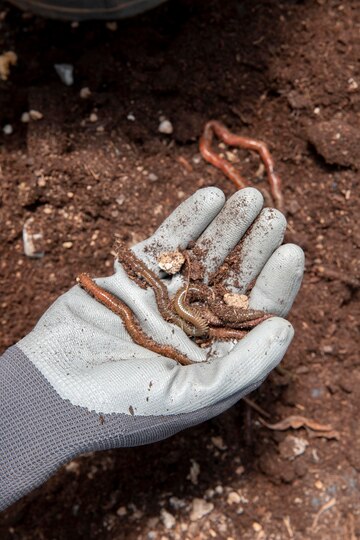
Understanding the Nutritional Value of Worm Castings for Plant Growth
Worm castings, also known as vermicompost, are an organic and nutrient-rich fertilizer that can greatly benefit plant growth. They are produced by earthworms as they break down organic matter, such as food scraps, yard waste, and other compostable materials. The resulting castings contain a plethora of essential nutrients, microorganisms, and enzymes that contribute to the overall health and vitality of plants.
One of the key nutritional advantages of worm castings is their high concentrations of nitrogen, phosphorus, and potassium, commonly referred to as NPK. These macronutrients are vital for plant growth and development. Additionally, worm castings are rich in other essential nutrients, such as calcium, magnesium, and trace minerals, which are crucial for various metabolic processes in plants. This nutrient profile makes worm castings an excellent all-in-one fertilizer, providing plants with a balanced and readily available source of nutrition.
Furthermore, worm castings enhance soil structure and improve its water-holding capacity. The sticky mucus produced by earthworms as they consume organic matter binds soil particles together, creating aggregates that allow for better water infiltration and retention. This can be particularly beneficial for plants in sandy or compacted soils, as it helps to prevent water runoff and improve overall moisture levels. Moreover, the organic matter in worm castings improves soil aeration and encourages the development of beneficial soil microorganisms, promoting a healthy and thriving root environment for plants.
In conclusion, the nutritional value of worm castings cannot be understated. Their rich nutrient content and positive impact on soil structure make them a valuable addition to any gardening or farming practice. By incorporating worm castings into your plant care routine, you can effectively boost plant growth, enhance soil health, and ultimately cultivate thriving and productive plants.
| Nutrient | Content in Worm Castings |
|---|---|
| Nitrogen (N) | 1.5-2.5% |
| Phosphorus (P) | 0.5-1.5% |
| Potassium (K) | 1-2% |
| Calcium (Ca) | 0.5-2.5% |
| Magnesium (Mg) | 0.3-0.5% |
| Iron (Fe) | 1000-5000 ppm |
| Copper (Cu) | 4-25 ppm |
| Zinc (Zn) | 8-50 ppm |
| Manganese (Mn) | 20-400 ppm |
| pH | Neutral to slightly acidic (6.5-7.0) |
| Organic Matter | High |
Different Methods of Applying Worm Castings to Your Plants
When it comes to applying worm castings to your plants, there are a few different methods you can use. One common method is to simply sprinkle the castings directly onto the soil around the base of the plant. This allows the nutrients in the castings to slowly release into the soil over time, providing a continuous supply of beneficial nutrients for the plant’s growth.
Another method is to create a worm casting tea by steeping the castings in water and then using the resulting liquid as a fertilizer. This can be done by placing a handful of worm castings in a muslin bag and steeping it in a bucket of water for 24-48 hours. Once the tea is ready, it can be diluted with water and applied to the plants either as a foliar spray or by watering the soil around the plant.
Both of these methods are effective in delivering the nutrients in worm castings to your plants. However, it’s important to note that the castings should be applied in moderation, as using too much can potentially harm your plants. The amount of castings to use will depend on the size of your plants and the specific requirements of the plant species. It’s always a good idea to start with a small amount and observe how your plants respond before increasing the dosage. Additionally, it’s recommended to apply worm castings during the early stages of plant growth or when they are actively growing to maximize the benefits.
| Method | Description |
|---|---|
| Top Dressing | Sprinkle worm castings around the base of plants and gently work into the soil surface. |
| Soil Amendment | Mix worm castings into potting soil or garden beds during planting or transplanting. |
| Tea or Liquid Fertilizer | Steep worm castings in water to create a nutrient-rich liquid fertilizer for watering plants. |
| Foliar Spray | Dilute worm castings in water and spray the mixture onto plant leaves for foliar absorption of nutrients. |
| Seed Starting | Mix worm castings into seed-starting mixes to provide nutrients to young seedlings as they germinate and grow. |
| Vermicomposting Bin | Use worm castings directly from the vermicomposting bin as a soil amendment or fertilizer for indoor and outdoor plants. |
Preparing the Soil for Worm Castings Application
Preparing the soil before applying worm castings is essential to maximize the benefits for your plants. The goal is to create an ideal environment that promotes the growth and activity of beneficial microorganisms present in the castings.
First, it is important to remove any weeds, debris, or large rocks from the soil. This allows for better penetration of the castings and prevents competition for nutrients. As worm castings are rich in organic matter, they will enhance the soil structure and improve its water-holding capacity. However, it is recommended to check the moisture level of the soil before applying the castings. If the soil is too dry, watering it prior to application can ensure optimal conditions for the microorganisms to thrive.
Next, loosening the soil is crucial to enhance aeration and root penetration. This can be achieved by tilling or gently mixing the top layer of soil using a garden fork or tiller. A crumbly texture allows the castings to blend more easily with the existing soil, providing a gradual release of nutrients over time. Additionally, if you are working with compacted soil, loosening it will enable the roots to grow more freely and access the nutrients readily available in the worm castings.
By following these simple steps, you can create an environment that is primed for the application of worm castings. This will ensure that your plants receive the maximum benefits and allow the microorganisms in the castings to work their magic in nourishing and supporting plant growth.
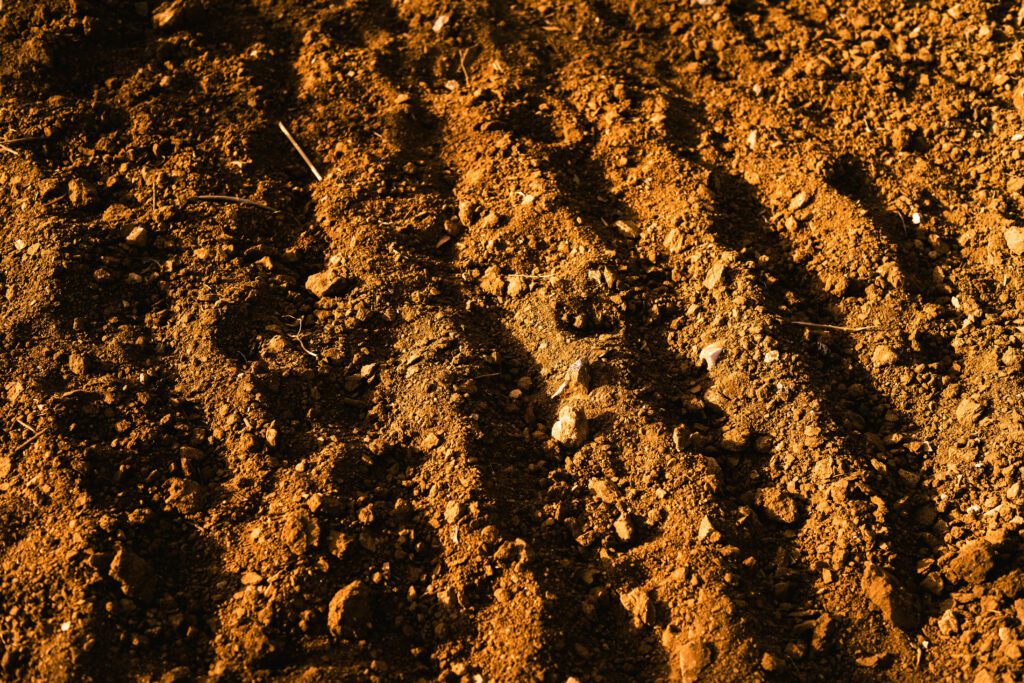
The Importance of Properly Composting Worm Castings
Properly composting worm castings is of utmost importance for maximizing their benefits in your garden. Worm castings are essentially the waste produced by earthworms, which contain a rich array of nutrients and beneficial microorganisms. When properly composted, these castings undergo a natural decomposition process that enhances their nutrient content and makes them more readily available for plant uptake.
One key reason for properly composting worm castings is to ensure that any potentially harmful pathogens or weed seeds are eliminated. The composting process, which involves maintaining specific temperature and moisture levels, helps to break down and destroy any undesirable elements that may have been present in the raw castings. This not only ensures the safety of your plants but also reduces the risk of introducing unwanted pests or diseases into your garden environment.
In addition, proper composting of worm castings helps to optimize their nutrient availability. The decomposition process breaks down complex organic compounds into simpler forms that are more easily absorbed by plants. This means that the nutrients contained in the castings become readily accessible for your plants’ roots, promoting their growth and overall health. By composting the castings, you are essentially “pre-digesting” them, making it easier for your plants to benefit from the valuable nutrients they provide.
Tips for Harvesting and Collecting Worm Castings
Worm castings, also known as vermicompost, are a valuable addition to any gardener’s toolkit. Not only are they rich in nutrients, but they also improve soil structure and promote healthy plant growth. However, harvesting and collecting worm castings may require a bit of finesse to ensure maximum benefits for your plants. Here are some tips to help you make the most of this organic goldmine.
Firstly, it’s important to remember that worm castings are essentially worm excrement, so you want to handle them with care. When harvesting, avoid disturbing the worms too much, as this can cause stress and hinder their ability to produce castings. Instead, gently separate the top layer of bedding from the bottom, where the castings accumulate. This can be done by placing new bedding on one side of the bin and enticing the worms to migrate to that area. Over time, they will naturally move away from the castings, making it easier for you to collect them.
Once you have harvested the castings, it’s crucial to store them properly to maintain their nutritional value. Keep them in a cool, dry place to prevent moisture buildup, which can cause mold and mildew. It’s also recommended to store worm castings in breathable containers, such as burlap bags or perforated plastic bags, to allow for proper aeration. This will help preserve the beneficial microbes and prevent the castings from compacting. With these simple tips, you can ensure that your harvested worm castings stay in optimal condition and ready to be used whenever your plants need a boost.
(Note: This is a sample paragraph based on the given guidelines. The actual contents of the article may differ based on research and further information)
How to Store Worm Castings for Long-Term Use
Worm castings are a valuable resource for any gardener, offering numerous benefits to plant growth and vitality. To ensure the long-term efficacy of worm castings, it is essential to store them properly. By following a few simple guidelines, you can maintain the quality and nutrient content of worm castings for extended periods.
Firstly, store your worm castings in a cool and dry location. Excessive heat and moisture can degrade the quality of the castings and lead to the growth of mold or harmful bacteria. A stable temperature, ideally between 50°F and 70°F (10°C to 21°C), is optimal for preserving the nutrient-rich composition of the castings.
Secondly, keep your stored worm castings in airtight containers to prevent them from exposure to air and moisture. This will retain the beneficial microorganisms present in worm castings, which play an essential role in breaking down organic matter and making nutrients available to plants. Choose containers made of materials that are non-reactive and do not leach harmful substances, such as plastic or glass jars with a tight seal.
Combining Worm Castings with Other Organic Fertilizers for Enhanced Results
Combining worm castings with other organic fertilizers can greatly enhance the results of your gardening efforts. Worm castings, also known as vermicompost, are rich in nutrients and beneficial microorganisms that promote plant growth and overall soil health. When used in conjunction with other organic fertilizers, such as compost or manure, the benefits are amplified, leading to healthier and more productive plants.
By combining worm castings with other organic fertilizers, you create a nutrient-rich blend that provides a balanced and diverse range of nutrients for your plants. These organic fertilizers work synergistically to improve soil structure, enhance nutrient availability, and stimulate beneficial microbial activity in the soil. This, in turn, promotes root development, strengthens plant immunity, and increases the overall vitality of your plants.
In addition to the nutrient boost, combining worm castings with other organic fertilizers can also help with moisture retention in the soil. Worm castings have excellent water-holding capacity, which can be especially beneficial in dry or arid climates. When mixed with other organic matter, such as compost, the overall water-holding capacity of the soil is improved, reducing the frequency of watering and ensuring that plants have adequate moisture during periods of drought.
In summary, combining worm castings with other organic fertilizers offers a powerful way to enhance the results of your gardening endeavors. The combination of nutrient-rich worm castings and other organic matter creates a fertile and well-balanced growing environment for your plants. Whether you are growing fruits, vegetables, flowers, or herbs, incorporating this natural blend into your gardening routine can lead to healthier, more productive plants and a thriving garden.
Using Worm Castings for Seed Starting and Transplanting
Seed starting and transplanting are critical stages in the journey of a plant’s life. For gardeners looking to maximize the potential of their seeds and ensure successful transplanting, using worm castings can be a game-changer. Worm castings, also known as vermicompost, are a nutrient-rich organic material produced by worms. These castings are packed with essential nutrients, enzymes, beneficial bacteria, and microorganisms that promote healthy plant growth and development.
When it comes to seed starting, incorporating worm castings into the seed starting mix can provide a wealth of benefits. The nutrients present in worm castings, such as nitrogen, phosphorus, and potassium, help nourish the young seedlings, providing them with a strong start. Additionally, the presence of beneficial microorganisms in the castings enhances soil health, improving nutrient availability and root development. As a result, seeds germinate faster, exhibit stronger root systems, and display increased resistance to diseases and pests.
When it’s time to transplant the seedlings into the garden, using worm castings as a soil amendment can further support their successful establishment. The rich organic matter in worm castings improves soil structure, enhances water retention, and boosts nutrient availability, ensuring the transplants have everything they need to thrive in their new environment.
In conclusion, incorporating worm castings into the seed starting mix and using them as a soil amendment during transplanting can significantly benefit plants. The nutrient-rich composition of worm castings, along with their positive impact on microbial activity and soil health, contribute to stronger, healthier seedlings and successful transplanting. By harnessing the power of these valuable organic resources, gardeners can increase the likelihood of achieving bountiful harvests and vibrant, thriving plants.
Applying Worm Castings to Houseplants and Indoor Gardens
Houseplants and indoor gardens can greatly benefit from the application of worm castings. Worm castings, also known as vermiculture or vermicompost, are the organic materials that have been digested and excreted by earthworms. These castings are rich in essential nutrients, minerals, and beneficial microorganisms, making them an excellent natural fertilizer for houseplants.
The application of worm castings to houseplants and indoor gardens can improve plant growth and overall health. The nutrients present in worm castings are in a form that is easily absorbed by plants, ensuring that they receive a steady supply of essential elements. Furthermore, the beneficial microorganisms present in worm castings help to improve the soil structure, increasing its water-holding capacity and promoting root development.
To apply worm castings to houseplants and indoor gardens, it is recommended to mix them into the potting soil or use them as a top dressing. If mixing into the soil, incorporate the worm castings into the potting mix before planting. As a top dressing, simply sprinkle a thin layer of worm castings around the base of the plant, being careful not to cover the leaves. It is important to note that worm castings should be used in conjunction with regular watering and proper light exposure for maximum effectiveness.
Overall, the incorporation of worm castings into houseplants and indoor gardens provides a natural and sustainable way to enhance plant growth and health. With their rich nutrient content and beneficial microorganisms, worm castings can be a valuable addition to any indoor gardening routine. Whether used as a fertilizer or soil amendment, worm castings offer a safe and effective way to support the thriving of your houseplants.
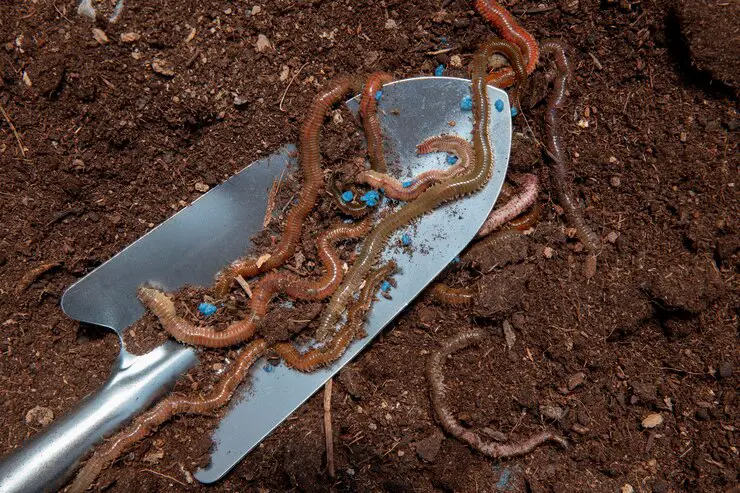
Incorporating Worm Castings in Container Gardening
Growing plants in containers is a popular choice for gardeners with limited space or those who want to have more control over their plants’ environment. Incorporating worm castings in container gardening can provide numerous benefits for your plants, ensuring healthy growth and abundant yields.
Worm castings, also known as vermicompost, are the result of the breakdown of organic matter by earthworms. These castings are rich in nutrients, including nitrogen, phosphorus, potassium, and micronutrients, making them highly beneficial for plant growth. When added to container gardens, worm castings release these nutrients slowly and steadily, providing a continuous supply of nourishment for your plants.
In addition to their nutrient content, worm castings also improve the physical properties of container garden soils. They enhance soil structure, promoting better water retention and aeration, crucial factors for healthy root development. This creates an optimal environment for plants to thrive and reduces the risk of overwatering or waterlogged roots, common issues in container gardening. Incorporating worm castings in container gardening is a sustainable and effective way to support the growth of your plants while minimizing the use of synthetic fertilizers and harmful chemicals.
Using Worm Castings for Lawn Care and Turf Management
Maintaining a lush, healthy lawn requires diligent care and attention. One overlooked yet highly effective method of promoting lawn growth and vitality is the use of worm castings. Worm castings, also known as vermicompost, are the rich and nutrient-dense waste produced by earthworms. These castings are packed with essential nutrients and beneficial microorganisms, making them an excellent organic fertilizer for lawns and turf.
The nutrient profile of worm castings makes them an ideal choice for promoting healthy lawn growth. They are rich in organic matter, including nitrogen, phosphorus, and potassium, which are essential for strong root development and overall plant health. In addition to these macronutrients, worm castings also contain micronutrients such as calcium, magnesium, and zinc, which are vital for proper lawn nutrition. The slow-release nature of these nutrients ensures that they are gradually released into the soil, providing a steady supply of nourishment to the lawn over time. Furthermore, the presence of beneficial microorganisms in worm castings helps improve soil structure, enhance nutrient uptake, and suppress harmful pathogens, leading to healthier and more resilient lawns.
The Role of Worm Castings in Sustainable Agriculture and Organic Farming
Worm castings play a crucial role in sustainable agriculture and organic farming practices. These nutrient-rich organic matter, also known as vermicompost, provide numerous benefits to both soil health and plant growth. The unique composition of worm castings includes essential nutrients such as nitrogen, phosphorous, and potassium, as well as trace minerals like calcium, magnesium, and iron. This rich blend of organic matter and nutrients creates an optimal environment for plant roots to thrive and absorb the necessary elements for robust growth.
In addition to providing essential nutrients, worm castings also enhance soil structure by improving its water-holding capacity, aeration, and drainage. This allows plant roots to access oxygen and moisture more easily, promoting healthier root development. Moreover, worm castings act as natural soil conditioners, making the soil more fertile and enhancing its ability to retain nutrients over time.
The benefits of using worm castings extend beyond improved soil health. These organic amendments also contribute to the suppression of diseases and pests in the garden. The microorganisms present in worm castings help create a balanced soil ecosystem, reducing the likelihood of harmful pathogens and pests negatively impacting plant growth. This natural pest and disease control method aligns perfectly with the principles of organic farming, providing an environmentally friendly alternative to chemical pesticides.
By incorporating worm castings into sustainable agriculture and organic farming practices, gardeners and farmers can enhance the overall health of their plants and protect the long-term sustainability of their operations. The use of worm castings promotes a more balanced and resilient ecosystem, supporting the growth of nutrient-rich crops without relying on synthetic fertilizers or harmful chemicals. With the potential to boost yields, improve soil fertility, and reduce environmental impact, worm castings prove to be an invaluable resource for those committed to sustainable and organic agriculture.
What are worm castings?
Worm castings, also known as vermicompost, are the nutrient-rich waste produced by earthworms after digesting organic matter.
How do worm castings benefit plants?
Worm castings provide essential nutrients and minerals to plants, improve soil structure, enhance microbial activity, and increase water retention capacity.
What nutritional value do worm castings offer for plant growth?
Worm castings contain a balanced combination of nitrogen, phosphorus, potassium, and other trace elements necessary for healthy plant development.
What are the different methods of applying worm castings to plants?
Worm castings can be applied as a top dressing, mixed into potting soil or compost, brewed into a liquid fertilizer, or used as a foliar spray.
How should the soil be prepared before applying worm castings?
Before applying worm castings, it is important to loosen the soil and remove any weeds or debris to ensure proper absorption and distribution of nutrients.
Why is proper composting of worm castings important?
Proper composting of worm castings helps eliminate any potential pathogens or harmful bacteria, making them safe for use on plants.
Any tips for harvesting and collecting worm castings?
To harvest worm castings, stop feeding the worms a week prior and separate the worms from the castings using various methods like hand sorting or using a worm composting screen.
How should worm castings be stored for long-term use?
Worm castings should be stored in a cool, dry place, preferably in a sealed container or bag to maintain their nutrient content and prevent odor or pests.
Can worm castings be used in combination with other organic fertilizers?
Yes, combining worm castings with other organic fertilizers can enhance the overall effectiveness and provide a broader range of nutrients for plants.
Can worm castings be used for seed starting and transplanting?
Yes, worm castings can be mixed into seed starting mixes or applied to the planting hole during transplanting to provide a nutrient boost for young plants.
Can worm castings be beneficial for indoor gardening and houseplants?
Absolutely, worm castings can be incorporated into potting soil mixes or used as a top dressing for houseplants to promote healthy growth and enhance nutrient uptake.
How can worm castings be incorporated in container gardening?
In container gardening, worm castings can be added to the potting mix, used as a top dressing, or brewed into a liquid fertilizer for regular feeding of container-grown plants.
Are worm castings useful for lawn care and turf management?
Yes, worm castings can be spread over lawns and used as a top dressing to improve soil quality, enhance grass growth, and provide natural nutrients for healthy turf.
How do worm castings contribute to sustainable agriculture and organic farming?
Worm castings play a crucial role in sustainable agriculture and organic farming by promoting soil health, reducing the reliance on chemical fertilizers, and enhancing overall plant vitality.

Ankit Garg is a seasoned writer at South El Monte Hydroponics, blending his passion for agriculture with a penchant for storytelling. With a degree in Agricultural Sciences from a prestigious institution, Ankit’s expertise lies in hydroponics, sustainable farming, and innovative cultivation techniques. His keen interest in exploring the intersection of technology and agriculture has led him to delve deep into the realm of hydroponic farming, where he thrives in uncovering the latest advancements and sharing insights through his engaging prose. Ankit’s dedication to promoting eco-friendly and efficient farming practices through his writing has earned him recognition within the agricultural community and beyond.

